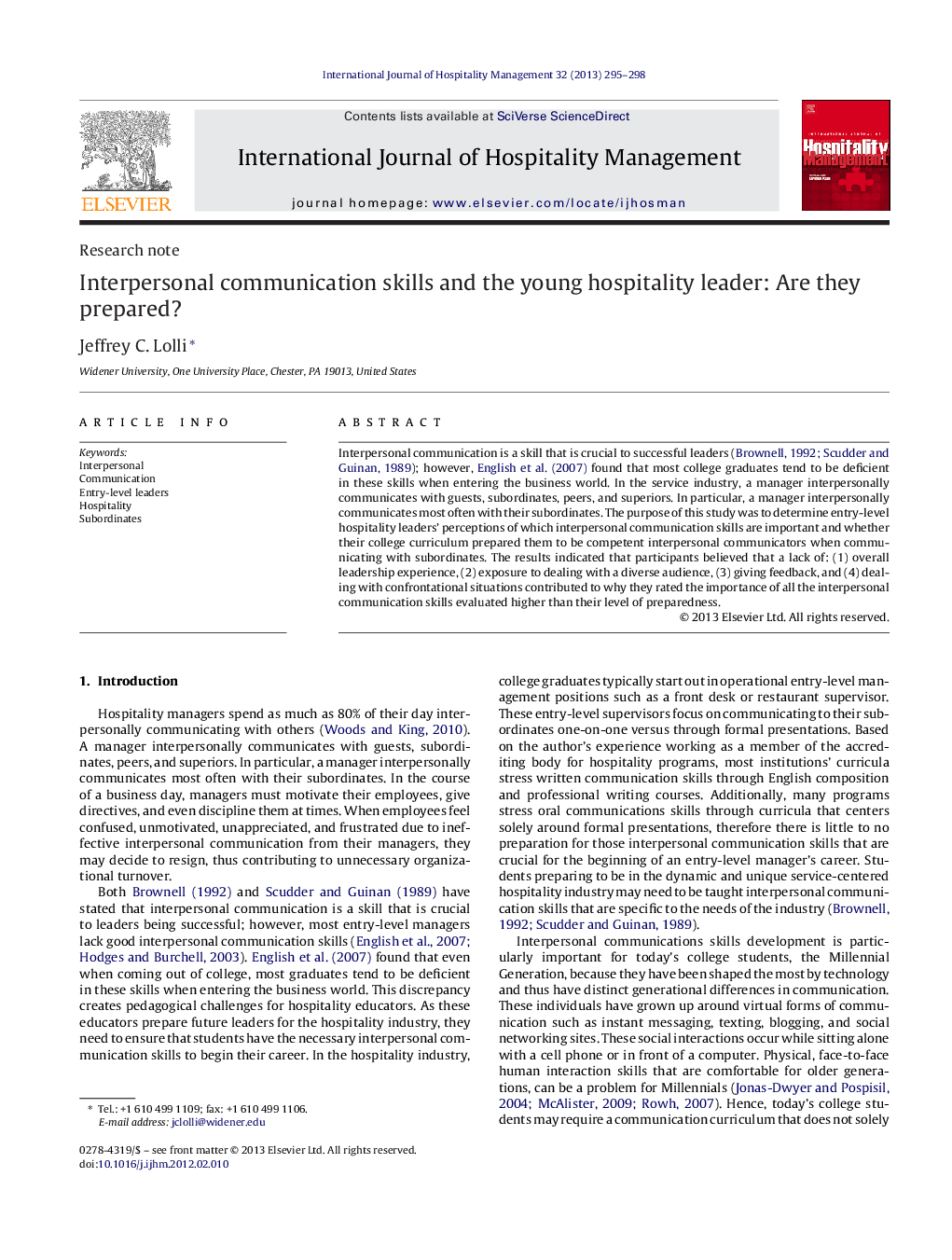| Article ID | Journal | Published Year | Pages | File Type |
|---|---|---|---|---|
| 1009750 | International Journal of Hospitality Management | 2013 | 4 Pages |
Interpersonal communication is a skill that is crucial to successful leaders (Brownell, 1992 and Scudder and Guinan, 1989); however, English et al. (2007) found that most college graduates tend to be deficient in these skills when entering the business world. In the service industry, a manager interpersonally communicates with guests, subordinates, peers, and superiors. In particular, a manager interpersonally communicates most often with their subordinates. The purpose of this study was to determine entry-level hospitality leaders’ perceptions of which interpersonal communication skills are important and whether their college curriculum prepared them to be competent interpersonal communicators when communicating with subordinates. The results indicated that participants believed that a lack of: (1) overall leadership experience, (2) exposure to dealing with a diverse audience, (3) giving feedback, and (4) dealing with confrontational situations contributed to why they rated the importance of all the interpersonal communication skills evaluated higher than their level of preparedness.
